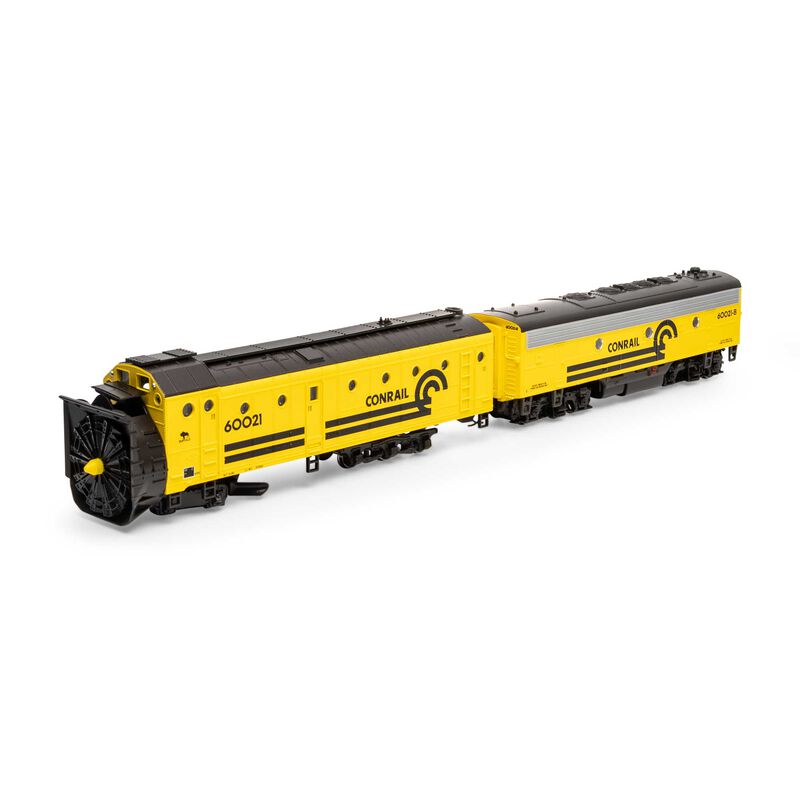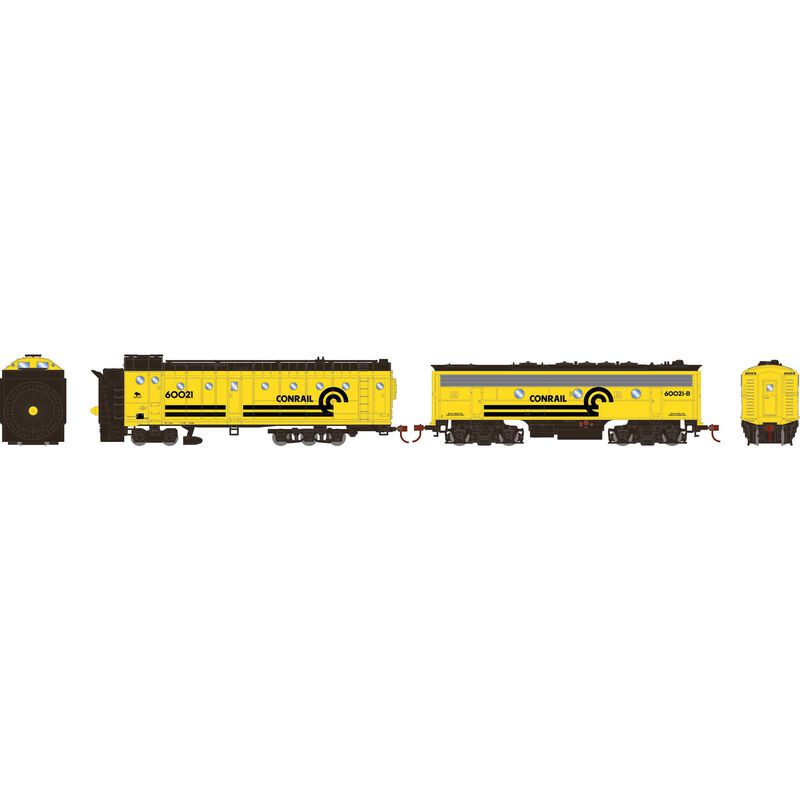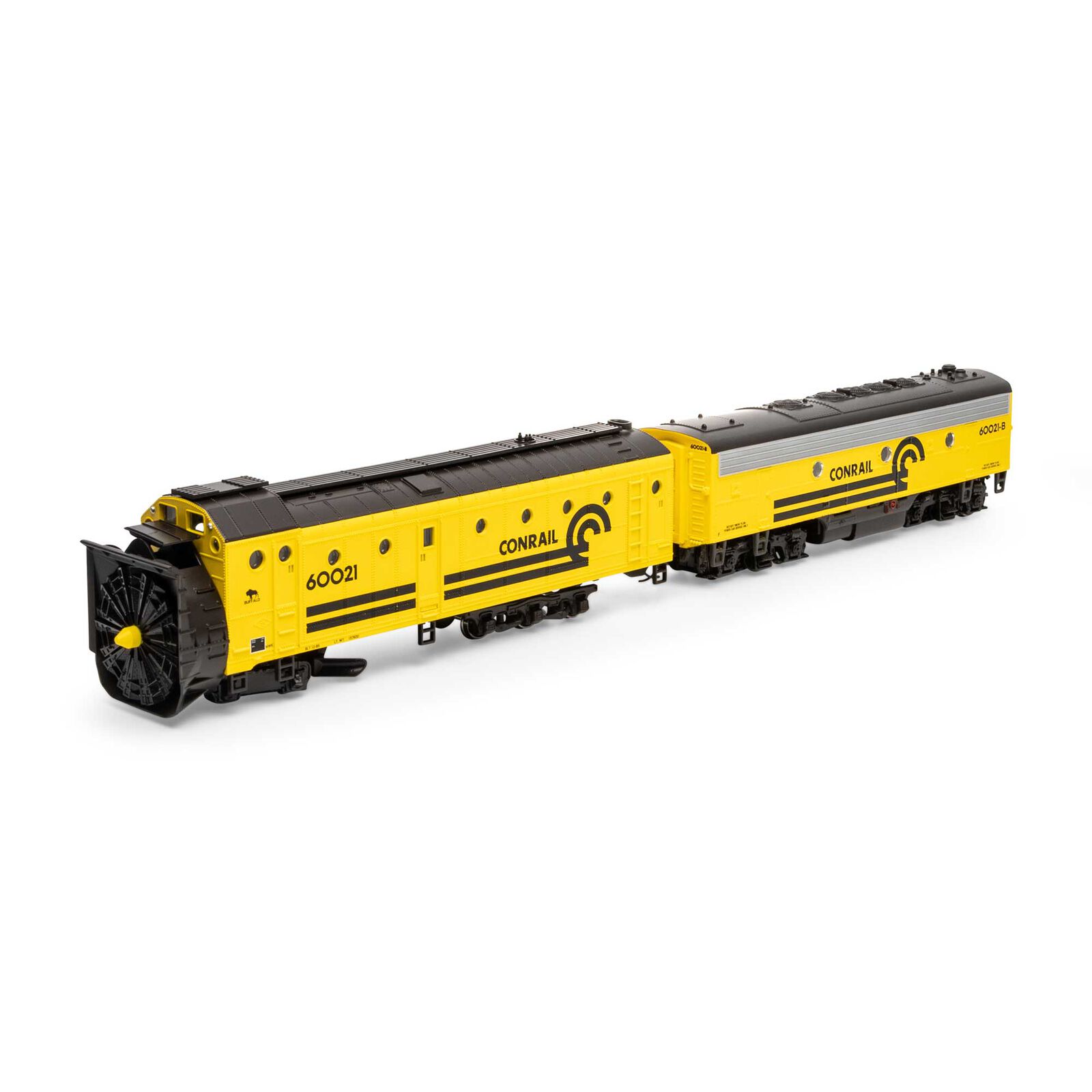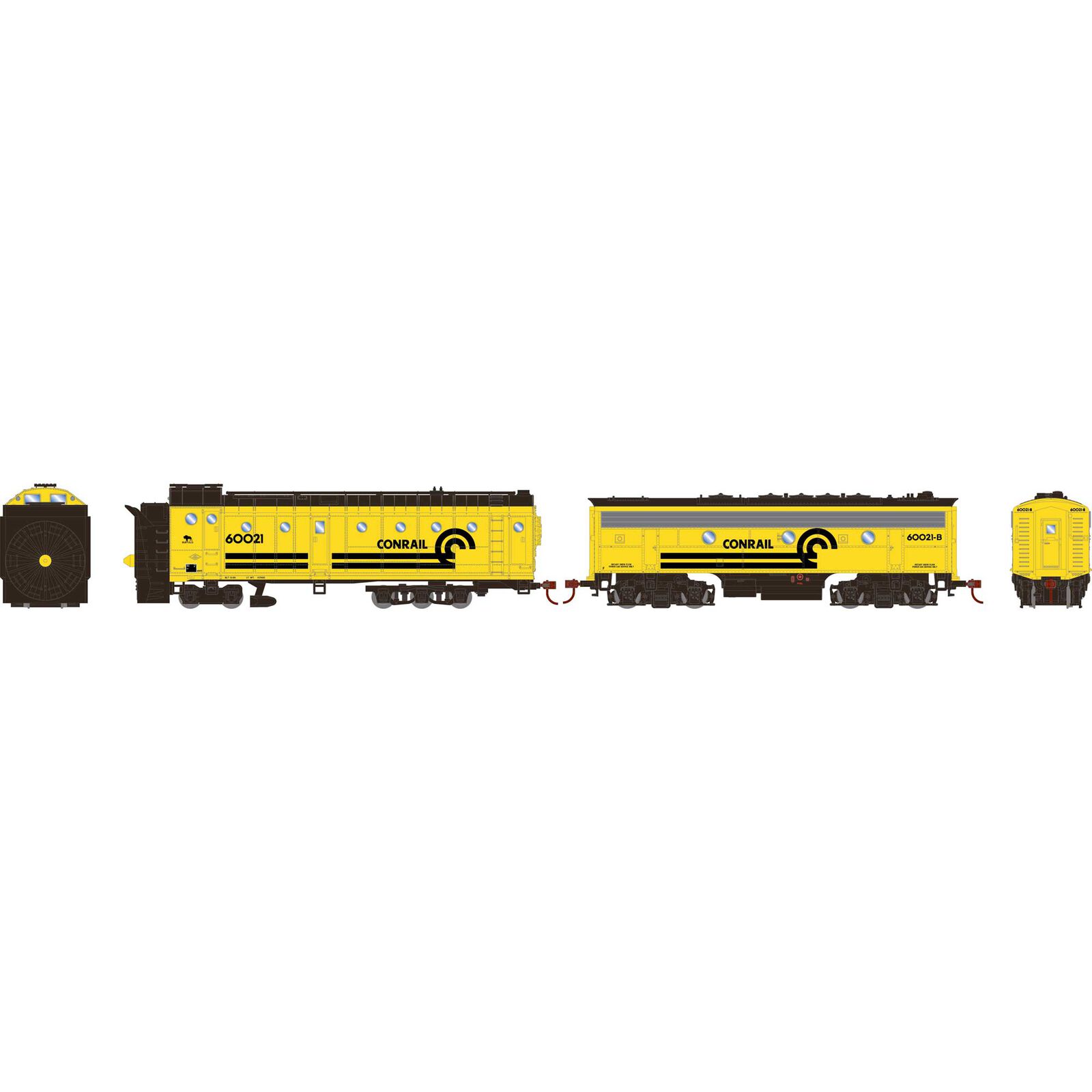ROTARY SNOWPLOW FEATURES:
- Electrically driven motor to operate the rotary blades
- Clear plastic cab and/or portal windows
- McHenry® operating scale knuckle couplers on rear of the snowplow
- Highly-detailed, injection-molded body
- Fully-assembled and ready-to-run out of the box
- Painted and printed for realistic decoration
- Highly-detailed, injection-molded body
- Minimum radius: 18”
- Recommended radius: 22”
F7B LOCOMOTIVE FEATURES:
- 5-pole motor with precision-machined flywheels and multi-link drive train for trouble-free operation
- All-wheel drive with precision gears for smooth and quiet operation
- All-wheel electrical pickup provides reliable current flow
- Heavy die-cast frame for greater traction and more pulling power
- Clear plastic portal windows
- McHenry® operating scale knuckle couplers
- DCC Ready 21 pin plug
- Machined metal wheels with RP25 contours
- Fully-assembled and ready-to-run out of the box
- Painted and printed for realistic decoration
- Highly-detailed, injection-molded body
- Minimum radius: 18”
- Recommended radius: 22”
PROTOTYPE AND BACKGROUND INFO:
The Rotary Snowplow is a piece of railroad snow removal equipment with a large circular set of blades on its front end that rotate to cut through the snow on the track ahead of it. When snow is too deep, the railroads call on their rotary. The precursor to the rotary snowplow was the wedge snowplow.
Early rotaries had steam engines inside their car bodies to power the blades. Rotaries of newer construction are either diesel- or electric-powered. Many steam plows were converted to electricity. Some electric plows can take their power from a locomotive, while others are semi-permanently coupled to power units
Some Rotaries get their electrical power from rebuilt F7B units, that were specifically rebuilt to power the Rotaries.







